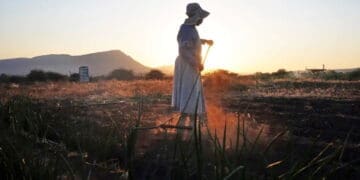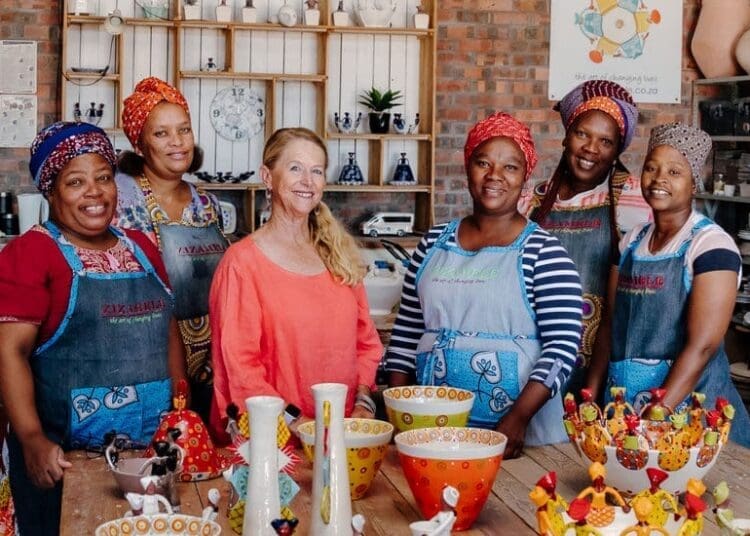At a busy global trade expo in Johannesburg, a small ceramics stall stands out not for its size, but for the rush of buyers scrambling to grab what was left.
Within hours, Zizamele Ceramics had sold most of its artworks.
Its handmade pottery, painted in bright colours and shaped with care, tells a story that began in Masiphumelele, a township on the edge of Cape Town, where seasoned ceramicist Toni Burton launched a community training programme in 2008.
“I trained a group of 30 unemployed women and men in ceramics,” Burton recalled.
But when the training ended, she could not walk away.
“It seemed wrong to send them back to poverty after raising their expectations,” she explained.
So instead of returning to her own studio practice, Burton founded Zizamele Ceramics, a Zulu word meaning do something for yourself.
From the beginning, Zizamele was built as a platform for women. Most had never touched clay before. Today, they are exporting original, signed ceramic art to international buyers.
“Foreigners really value this work,” said Burton.m“And once the pieces are sold, every artist gets a commission.”
At the heart of their collection is the iconic Ubuntu Bowl, sculpted with a ring of women holding hands around the rim — some with babies on their backs, all wearing vibrant African dresses.
Each bowl is handmade, painted and signed by the artisan who crafted it.
“We first created the bowl we call Ubuntu, meaning people are stronger together,” Burton explained.
“It’s a celebration of sisterhood, community and culture. And that message seems to resonate everywhere.”
But despite the international demand, success hasn’t come easily.
Exporting from South Africa still involves hurdles from high shipping costs and customs delays to the challenge of scaling up production while staying handmade.
Burton believes more support is needed for craft-based enterprises that fall between fine art and traditional manufacturing.
“Creative SMMEs are often overlooked when it comes to funding or export support,” she said.
“Yet they’re preserving culture and creating jobs.”
The company is supported by the Small Enterprise Development Agency and regularly exhibits at business conference shows.
But the heart of the business remains deeply local — every product still made in Masiphumelele, every piece telling a story of shared growth.
Now in its 16th year, Zizamele continues to prove that world-class creativity does not need to come from big factories or art schools.
It now operates from a store at Cape Town’s popular tourist destination the V&A Waterfront and has a studio in Lekkerwater Industrial Park in Cape Town.
From the outset, Zizamele was committed to creating sustainable employment for township women.
Today, the studio is a hive of individual creativity and collective effort.
Nkuli Sam, a master hand builder, is known for her exquisite brushwork and attention to detail. Her Women of Africa range and iconic Standing Angels reflect both skill and soul, always recognisable by her distinct colour palette and design flair.
Pumeza Koshe, who joined during a massive order for 1200 items from the Netherlands, quickly became the logistics lifeline of the business. From packaging delicate ceramics to managing admin tasks, she ensures that each piece reaches global customers in perfect condition.
Songezo Mrwebi, who joined Zizamele at just 18, trained at the renowned Noordhoek Pottery Village. Today, he is the studio’s lead wheel-thrower and the creator behind popular ranges like the Big 5 Tea Light Candles and Zebra Jugs.
“Clay brought us together,” Burton said. “And together, we’re sending our message out into the world.”































































